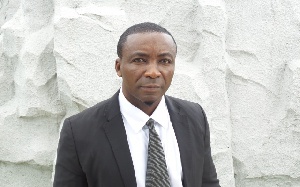A private legal practitioner has said the government of Ghana must use state funds to pay part of the monies lost by several thousand clients who invested their capital with the now-troubled gold dealership firm Menzgold Ghana Limited.
According to Dr Nana Oppong, who is the President of Distinguished Scholars of Africa, even though the government is not obliged to do so, it can make that intervention on humanitarian grounds by supplementing Menzgold’s payment efforts, especially in the event that the company is unable to fully pay all its clients principal investments to them after all possible avenues have been exhausted.
In Dr Oppong’s view, the government should pay a certain percentage of the locked-up investments to the victims on compassionate grounds.
The government has said repeatedly that even though it sympathises with the Menzgold clients, it cannot use taxpayers’ money to bail them out.
Information Minister Kojo Oppong Nkrumah recently urged the customers to follow appropriate legal processes to get their monies back.
Prior to that, Minister of Finance Ken Ofori-Atta described the embattled customers as “greedy” people and said the government was not going to use a pesewa of state funds to pay them.
But speaking to Benjamin Akakpo on the Executive Breakfast Show (EBS) on Class91.3FM on Tuesday, 15 January 2018, Dr Oppong said: “We’re a poor country, we’re not that rich, so, we need money for hospitals, schools. We’re borrowing and, so, there is a very limited thing we can do, but we can do something. We have to sit down and see: Can we have 10 or 20 per cent or 40 per cent? How much can we bring to help these people? Then moving forward, how do we make sure that when a new company comes into town and says: ‘I promise you this and that’, we approve and monitor and make sure the people don’t become victims again”.
Dr Oppong added: “Recently, I heard there was compensation given to some victims of the shooting in Kumasi and so on. Legally, if you look at it, the government shouldn’t have paid it, but, on politically or moral grounds and humanitarian grounds, it was done.
“Sometimes we do things not because we are legally obliged but because it is the right thing to do. As a nation, on humanitarian grounds, to show compassion, to show solidarity and to minimise injuries and the pain and suffering of people, we should think about that.”
General News of Tuesday, 15 January 2019
Source: classfmonline.com

















